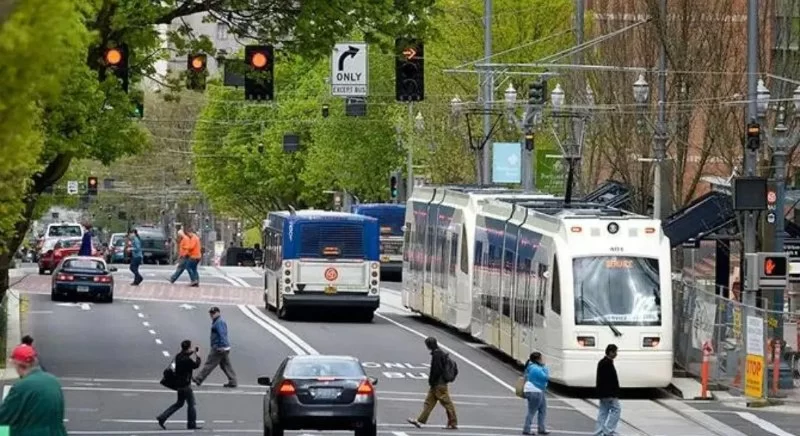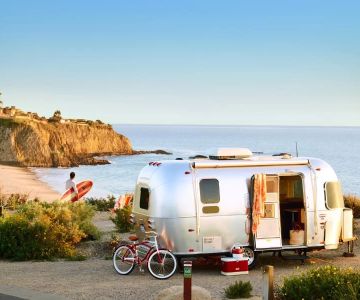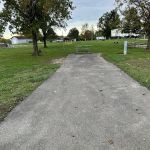
A Guide to Using Public Transportation in Major US Cities
Public transportation in the United States offers a variety of options for travelers, whether you're commuting to work, visiting family, or exploring new cities. With large metropolitan areas offering subway systems, buses, light rails, and ferries, it's essential to understand how to make the most of these services. In this guide, we'll explore the top US cities with excellent public transit, provide tips for navigating the system, and share personal experiences from travelers who have mastered the art of public transportation.
1. Why Public Transportation is Key in Major US Cities
In many US cities, owning a car is not necessary due to the efficiency and convenience of public transportation. This is particularly true in areas with high traffic congestion, limited parking, and well-developed transit networks. Public transportation not only provides an affordable travel option but also helps reduce the environmental impact of car travel. Whether you're visiting New York City or Los Angeles, knowing how to use public transportation can make your experience more enjoyable and hassle-free.
2. Popular Public Transit Systems in Major US Cities
Each US city has a unique transportation system suited to its landscape and population. Here’s a quick overview of some of the best public transit systems in major US cities:
- New York City: Known for its iconic subway system, New York offers 24/7 service with a vast network of lines that can take you almost anywhere in the city. The MetroCard is essential for subway and bus rides.
- San Francisco: The Bay Area Rapid Transit (BART) system connects San Francisco with nearby cities, including Oakland and Berkeley. Additionally, the iconic cable cars provide scenic views of the city.
- Chicago: Chicago's "L" (short for "elevated") trains are a fast and affordable way to navigate the city. With its extensive network of buses and trains, Chicago is a model for efficient urban transit.
- Washington D.C.: The Washington Metro is one of the most reliable transit systems in the US, connecting the city’s monuments, museums, and suburbs. It’s easy to navigate with the SmarTrip card.
- Los Angeles: While LA is known for its car culture, its expanding metro system, which includes buses, subways, and light rail, is making it easier to get around without a car.
3. Tips for Using Public Transportation Effectively
While public transportation is convenient, it’s essential to know how to navigate it properly. Here are some practical tips to ensure you have a smooth journey:
- Understand the Routes: Before heading out, research your city's public transit routes. Most major cities have maps and apps that provide real-time updates, so you'll know exactly when and where to catch your bus or train.
- Have the Right Fare: Many public transit systems require you to have a fare card or a ticket before boarding. In some cities, mobile apps allow you to pay electronically, making it easy to ride without worrying about cash.
- Plan for Delays: Public transportation can be affected by weather, accidents, or heavy traffic. Make sure to allow extra time for delays, especially during rush hour.
- Stay Safe: Be mindful of your surroundings, especially at night or in less crowded areas. Keep your belongings close and stay alert to ensure a safe trip.
4. Benefits of Using Public Transportation
Public transportation in major US cities has many benefits, both for residents and travelers:
- Cost-Effective: Using public transportation is generally more affordable than owning a car, particularly when factoring in gas, parking, and maintenance costs.
- Eco-Friendly: By using buses, trains, and subways, you help reduce the carbon footprint associated with driving personal vehicles. This is particularly beneficial in cities with high population densities.
- Time-Saving: Public transportation often bypasses traffic, especially in large cities with dedicated bus lanes or subway systems. This can save time during your commute.
- Social and Cultural Experience: Riding public transit offers a unique opportunity to experience local culture. From meeting new people to exploring different neighborhoods, public transit provides a different perspective on city life.
5. Common Challenges of Public Transportation and How to Overcome Them
While public transit is a fantastic way to explore the city, there are a few challenges that travelers may encounter. Here’s how to deal with some of the most common issues:
- Overcrowding: Many public transit systems, especially during rush hours, can be overcrowded. To avoid this, try to travel during off-peak times or consider using alternative routes if available.
- Unpredictable Schedules: Some public transit systems may experience delays due to various factors, such as traffic or weather. Always check the real-time status on apps or station monitors before you head out.
- Accessibility: While most major cities have made strides in improving accessibility, some older transit systems may still have limited accessibility for people with disabilities. Check your transit agency’s website for accessible routes and stations.
6. Exploring Major US Cities: A Personal Experience
As a frequent traveler, I’ve had my fair share of experiences using public transportation in various US cities. One of my favorite memories is from my trip to New York City, where I used the subway system to explore different neighborhoods. Despite the hustle and bustle of the city, the subway was surprisingly efficient and easy to navigate. I also remember using the San Francisco BART system to visit the nearby city of Oakland for a weekend getaway. The trip was smooth, and the views from the train added to the excitement of the journey.
Another memorable experience was using the Washington Metro to visit the National Mall. The metro system was incredibly easy to use, and I was able to see all of the major monuments and museums in a single day, all thanks to the public transit system.
7. Final Thoughts: Public Transit as the Future of Urban Travel
Public transportation in major US cities is not just a convenient way to get from point A to point B, but also a chance to experience the pulse of the city. Whether you’re exploring a new city or commuting to work, public transit offers numerous benefits, including affordability, environmental impact, and the ability to see a city from a local’s perspective. So next time you visit a major US city, consider ditching the car and hopping on public transportation for a more immersive and cost-effective experience.







 Lizard Creek Campground, it’s Familytime4.0 (186 reviews)
Lizard Creek Campground, it’s Familytime4.0 (186 reviews) Potpourri Village4.0 (139 reviews)
Potpourri Village4.0 (139 reviews) Lake Shore Resort4.0 (2643 reviews)
Lake Shore Resort4.0 (2643 reviews) Northmeadow Village3.0 (109 reviews)
Northmeadow Village3.0 (109 reviews) Rv parking south dakota side of Hendricks0.0 (0 reviews)
Rv parking south dakota side of Hendricks0.0 (0 reviews) Campsite 206 (Electric Only)0.0 (0 reviews)
Campsite 206 (Electric Only)0.0 (0 reviews) Exclusive Travel Packages for First-Class Travelers: A Guide to Luxury Vacations
Exclusive Travel Packages for First-Class Travelers: A Guide to Luxury Vacations Refined Travel Experiences in Southeast Asia: Explore Luxury & Unique Destinations
Refined Travel Experiences in Southeast Asia: Explore Luxury & Unique Destinations How to Make the Most of Luxury Vacation Deals: Expert Tips for Savvy Travelers
How to Make the Most of Luxury Vacation Deals: Expert Tips for Savvy Travelers Refined Travel Itineraries for Art and Culture Lovers: Explore the World of Art and History
Refined Travel Itineraries for Art and Culture Lovers: Explore the World of Art and History How to Enjoy a Refined Travel Experience in the Mountains
How to Enjoy a Refined Travel Experience in the Mountains Most Luxurious Destinations for Honeymooners: Top Spots for Romance and Luxury
Most Luxurious Destinations for Honeymooners: Top Spots for Romance and Luxury